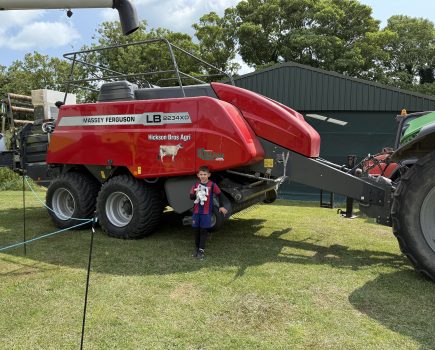We all have to hope that the government’s recently announced delay in the roll-out of the Sustainable Farming Initiative (SFI) is not linked to its cooling on environmentalism generally. Desperate to improve his government’s chances in the General Election, PM Rishi Sunak has taken a good look at the recent Uxbridge and South Ruislip by-election, where the Tory vote held up remarkably well, due (it is believed) to voter anger at the extension of the Ultra Low Emission Zone charge into the constituency.
Before the Uxbridge result it had never really occurred to me that anti-clean air could become such a populist cause. This kind of environmentalism, I naively thought, is just common sense; we all live on this planet and, if we destroy it, we will all be the losers as a consequence.
But, post Uxbridge, it seems that the consensus regarding green policies has been shattered. If people in a constituency will vote in large numbers against a scheme that would immediately clean up the air everyone there was breathing (with the polluters paying the cost of the scheme), what chance is there of an electorate voting for policies with long term goals like net-zero carbon emissions by 2050?
The implications for UK farmers of this new political divide could be profound, as farming is right in the forefront of government environmental policies. How, for instance, will the CAP money that used to be spent on the BPS now be recycled? Michael Gove, when he was DEFRA secretary of state, set the tone for how farmers in Great Britain would be rewarded post-Brexit through the Environmental Land Management scheme (ELMS). Tax payers’ money would only be paid to farmers for ‘public goods’ such as improved on-farm biodiversity, cleaner water or reductions in greenhouse gas emissions like methane and CO2 from farms.
Much of the current interest in owning farmland is the excitement around expectations that farmers will be paid substantial sums to use some of their land for biodiversity net gain. Everyone who wants to, say, build a house, or factory, will need to pay a landowner to offset the impact of their development on wildlife if they can’t achieve a net gain on their own site.
I’ve been considering investing in min-till equipment on the arable enterprise, but on my limited acreage such a heavy outlay requires considerable faith that the money can be recouped through the incentives promised by ELMS. But my confidence has now been shaken, and, with arable commodity prices below break even, I’ve already decided to postpone my decision.
It has to be hoped that the Government’s slamming on of the proverbial brakes regarding commitments to net-zero 2050 and other nature-friendly policies is only a temporary aberration. But Sunak’s desperate electoral gamble has already done damage as everyone, farmers included, will now be more cautious about investing in the capital assets and technology necessary to bring about a net-zero future for the UK.







